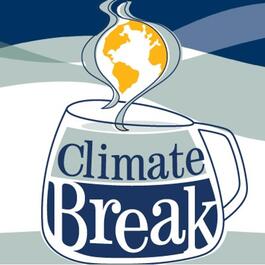
Climate Break
Climate change is upon us. Fires, droughts, hurricanes, sea level rise, and melting ice caps are all part of our new normal. But something else is happening as well. Scientists, innovators, organizations, cities, companies, and citizens are taking action, making progress, and finding solutions. Climate Break brings you stories of climate progress and interviews with climate innovators from California and around the world, in under 2 minutes. Our solution-oriented, radio-ready shows are produced by students and climate law and policy experts at the University of California, Berkeley. Climate Break is a co-production of the Center for Law, Energy, and Environment at UC Berkeley Law and KALW 91.7 FM San Francisco Bay Area, in conjunction with the Berkeley School of Journalism. (For a transcript of the trailer, visit https://climatebreak.org/about-climate-break/)
Show episodes
Real Ice, a UK based start-up, has been on the forefront of exploring the viability of this new technology. Aqua Freezing involves drilling holes through sea ice to pump out the sea water below and refreeze it on the surface. Once the water freezes, it thickens existing ice to the surface. Adding snow insulation in lat
Introduction to the Solution UC Davis researchers are examining a novel approach to combating climate change: turning our buildings into carbon sinks. The solution is based on incorporating biochar, a carbon-rich material obtained from plant material, into common construction materials like concrete, brick, and asphalt
How Sustainable Wood Helps Mitigate the Impact of Climate Change Sustainable wood refers to the use of mass timber, which involves smaller pieces of wood that are dried and glued together in a perpendicular, crosswise pattern to form large slabs. This process can incorporate a closed-loop system that repurposes wood, p
Assessing Climate Risks As climate change accelerates, climate risks are beginning to impact every aspect of society from infrastructure and transportation to health, biodiversity, and air and water quality. A climate risk is the potential for climate change to have adverse consequences for a human or ecological system
Unifying a Partisan Nation Around Nature Nature is Nonpartisan is a bipartisan, solutions-focused coalition working to unite Americans around shared environmental goals. By fostering cross-party support for conservation and land stewardship, the organization hopes to reframe climate action as a unifying national priori
What is the Waverley Street Foundation? The Waverley Street Foundation, founded by Laurene Powell Jobs in 2016, aims to attack climate related issues through funding community-led programs, leading to community action against climate change. The Waverley Street Foundation specifically funds programs related to renewabl